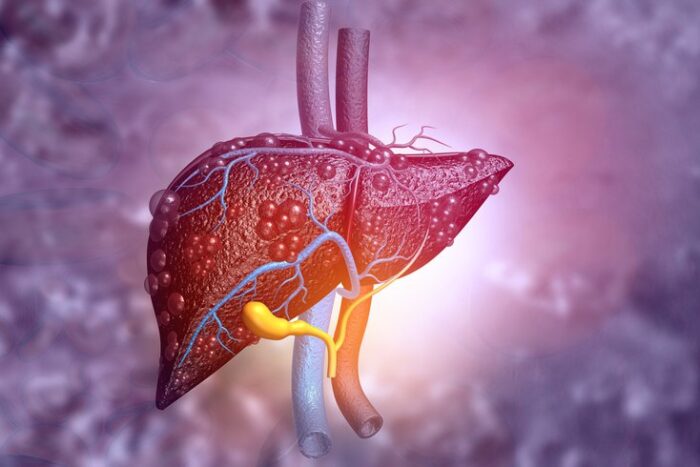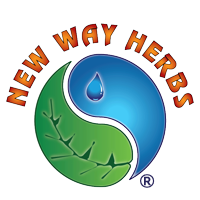Be Good to Your Liver & It Will Be Good to You


The human liver is involved in more than 500 essential body functions that keep you healthy, and all the while, it is under attack from thousands of toxic man-made chemicals. Every day we breathe in toxins from air pollution, eat toxins like pesticides, herbicides, and other chemicals in our food and put toxins on our skin with chemical-laden sunscreen, bug spray, and shaving cream.
While the Environmental Protection Agency has listed more than 85,000 chemicals that fall under the Toxic Substances Control Act, we already know that alcohol and more importantly, the invisible killer, sugar are major contributors to an ailing liver.
Everything we put in our bodies must go through the liver, so maybe we should be a little more thoughtful about the workload we place on this amazing organ. The liver is not only one of the largest organs in our bodies; it is also one of the most important and plays a central role in all metabolic processes in your body. This vital organ converts nutrients into substances we can use, stores these substances, and then supplies cells with them as needed. But it also collects toxins, converts them into harmless substances and works diligently to make sure they are released from the body. And refined sugar and high-fructose corn syrup can be as damaging to your liver as alcohol.
One of the most important jobs for the liver is the metabolism of carbohydrates. If blood sugar levels increase, the liver removes sugar from blood supplied by the portal vein and stores it in the form of glycogen. If blood sugar levels are too low, the liver breaks down glycogen and releases sugar into the blood. The liver also stores vitamins and minerals (iron and copper) and releases them into the bloodstream when needed.
So how does the liver do it? It uses blood coming from the digestive organs that carries nutrients, medication, and toxic substances. Once they reach the liver, these substances are processed, stored, altered, detoxified, and passed back into the blood or released in the bowel to be eliminated. In this way the liver can, for example, remove alcohol from your blood and get rid of by-products from the breakdown of medications. The liver cells convert ammonia to a much less toxic substance called urea, which is released into the blood. Urea is then transported to the kidneys and passes out of the body in urine. And the liver cells produce energy and bile, which is important in the breakdown of old or damaged blood cells and in the absorption of fats. The liver also produces proteins, with the help of vitamin K, that are crucial for blood clotting.
Of course, eating a healthy diet, exercise and avoiding toxic substances are the most important factor in liver health, but sometimes stress, medications, chemicals in the foods we eat and drug or alcohol exposure place a heavy burden on our liver. But, perhaps, there is more you can do to support your liver function.
Here are some herbs that promote a healthy liver that work best when used together.
Artichoke Leaf
Artichokes are rich in two liver-boosting antioxidants, cynarine and silymarin.
These antioxidants can recharge liver function while protecting your liver from damage. The liver is the only organ that can completely rebuild itself and artichokes may help your liver reduce fat deposits, reduce inflammation, promote healthy bile production and regenerate healthy liver tissue.
Just one serving of artichoke leaf tincture, can increase your bile flow to a healthy youthful level that breaks down extra fat while increasing your ability to absorb essential vitamins including A, D, E, and K, while flushing toxins out of your body.
Artichokes are potent, but you need more nutrients to address the side effects of poor liver health symptoms like digestive misery, memory lapses, and fatigue. Remember, if you have these problems, you need a wide variety of proven nutrients to work together in different ways to recharge your liver to full power.
Turmeric
Turmeric can supercharge your liver cells. The herb has been used since ancient times, and now we are beginning to see just how powerful this spice really is. Curcumin, the powerful compound in turmericprotects cells from toxicity and help regenerate your liver. Turmeric protects cells from damage, rebuilds your liver and cools age-related inflammation, the enemy of a healthy liver.
Ginger Root
Ginger has been used to reduce nausea and relieve an upset digestive system because certain enzymes in ginger help the body and promote healthy sugar levels. Ginger also supports the essential digestive enzymes, trypsin, and pancreatic lipase, to keep your digestion running smoothly and increase movement through your digestive tract to improve regularity, thus taking pressure off an overworked liver.
Milk Thistle
Recent research has shown that milk thistle can help reduce irritation caused by everyday oxidative stress and toxins. It can also help support liver function, thus helping your metabolic process run more efficiently, promoting healthy weight management.
A close cousin of artichokes, Milk Thistle (both from the thistle family of plants), Is considered the “King” of liver health herbs and filled with potent antioxidants that fight free radical damage to your liver. Your liver works hard to remove toxins from your body. But in the process of removing these toxins, your liver generates massive amounts of free radicals that can damage your liver cells and ignite age-related inflammation that can further damage your liver. The antioxidants in Milk Thistle neutralize free radicals, rendering them harmless and recharging your liver.
Beet Root
Beets are full of enzymes and antioxidants that help remove toxins from your body, increase healthy bile flow, protect your liver from damaging free radicals and is an excellent nutritional resource that can build healthy blood and normalize the pH balance in our bodies. The root contains vitamins A, C, B6, folic acid, protein, carbohydrates, antioxidants, and soluble fiber. It is believed to be a super food and may be, nutritionally, as valuable as blueberries and salmon.
Because Beet Root is rich in vitamin C, potassium, magnesium, manganese, bioflavonoids and beta-carotene, a concentrated tincture of Beetroot can expedite detoxification of the liver and boost the natural production of hormones. The fiber increases production of the detoxifying enzymes in the liver and protects the liver against fatty deposits, sometimes caused by alcohol abuse, protein deficiency, or other factors.
Dandelion Root (Taraxacum officinale)
A Rich Source of Nutrients, Dandelion Root offers a multitude of health benefits, is packed full of Vitamins A, C, K, E., and a rich source of minerals and antioxidants such as beta carotene and polyphenols. Some studies also have indicated that dandelion extracts and compounds provide protection against cellular damage and oxidative stress and may help reduce inflammation in the body.
Because Dandelion gently eliminates toxic wastes from the body, it is considered a powerful blood purifier. And this may prove useful an effective skin health supplement, for inflammatory skin conditions such as psoriasis, eczema, and acne through its action both in the liver and kidneys. A liver that is not performing adequately can worsen acne because it cannot break down and clear excess hormones from the body.
What Are the Symptoms of Liver Problems?
Your liver is an important organ in your body that performs a wide variety of functions. If you have a liver problem, you may experience some of these symptoms:
* Yellowish skin or eyes
* Nausea
* Vomiting
* Constipation
* Loss of appetite
* Abdominal pain
* Jaundice
* Spleen enlargement
* Headache
* Fatigue
* Fever
* Dark urine
* Darker stools
* Swollen ankles
* Yellowing of the gums
* Itching
* Aches and pains
* Sore throat
* Yellow discoloration of the whites of the eyes
* Numbness and tingling in the fingers and toes
* Tiredness
You may also have problems with your liver if you have a hepatitis C infection, have been taking birth control pills, have a high level of alcohol consumption, or if you are pregnant. In these cases, the symptoms of liver disease can be more severe.

Comments are closed here.